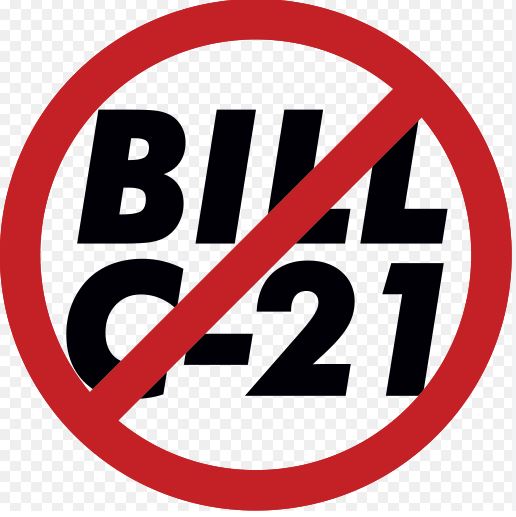The federal Liberal government’s contentious gun control legislation Bill C-21 passed the Senate without changes on Thursday, now poised to become law.
The bill passed the House of Commons in May after months of division and political acrimony. The version that made it to the Senate was significantly expanded from what the federal government had initially tabled a year prior.
Bill C-21 passed by a vote of 60 to 24, and with applause in the upper chamber.
The legislation includes measures to:
-Tighten gun laws to include “red flag” and “yellow flag” provisions related to a gun owner posing a risk to themselves or others;
– Impose a “freeze” on the sale, purchase or transfer of handguns in Canada;
– A prospective Criminal Code “technical definition” of what constitutes a prohibited assault-style firearm, meant to “cement in law” a permanent ban on future models once the bill comes into force;
-A series of provisions meant to make it illegal to make or buy ghost guns and to combat firearms smuggling; and
-Wording making clear the government’s intent to uphold Indigenous treaty rights.
The bill also includes a requirement for a parliamentary review of the technical definition five years after it comes into effect, while a series of other related measures are being advanced through regulations.
Defending Bill C-21 at the time, then-public safety minister Marco Mendicino said the Liberals were committed to go further “than any government in the history of this country” when it comes to gun control, while Conservative Leader Pierre Poilievre asserted the legislation targets law-abiding gun owners.
When the bill moved to the Senate, many gun control observers had wondered what, if any, amendments would be made to the legislation.
Ultimately, after six sitting months that included a dozen days of study at the Senate National Security, Defence and Veterans Affairs Committee, where 66 witnesses were heard from(opens in a new tab), Bill C-21 passed the Senate without amendment.
Though, senators did submit several observation about the bill, including that the government should consider “additional policy measures,” to address outstanding concerns, such as implementing a Canada-wide database and data collection process regarding all gun-related injuries and death, and consulting further with sport shooters.
In the view of Conservative senators, the inability to pass amendments to Bill C-21 was due to resistance from the “government majority,” concluding that it will be up to a future government to correct the “serious errors” that remain within the “extremely divisive bill.”
